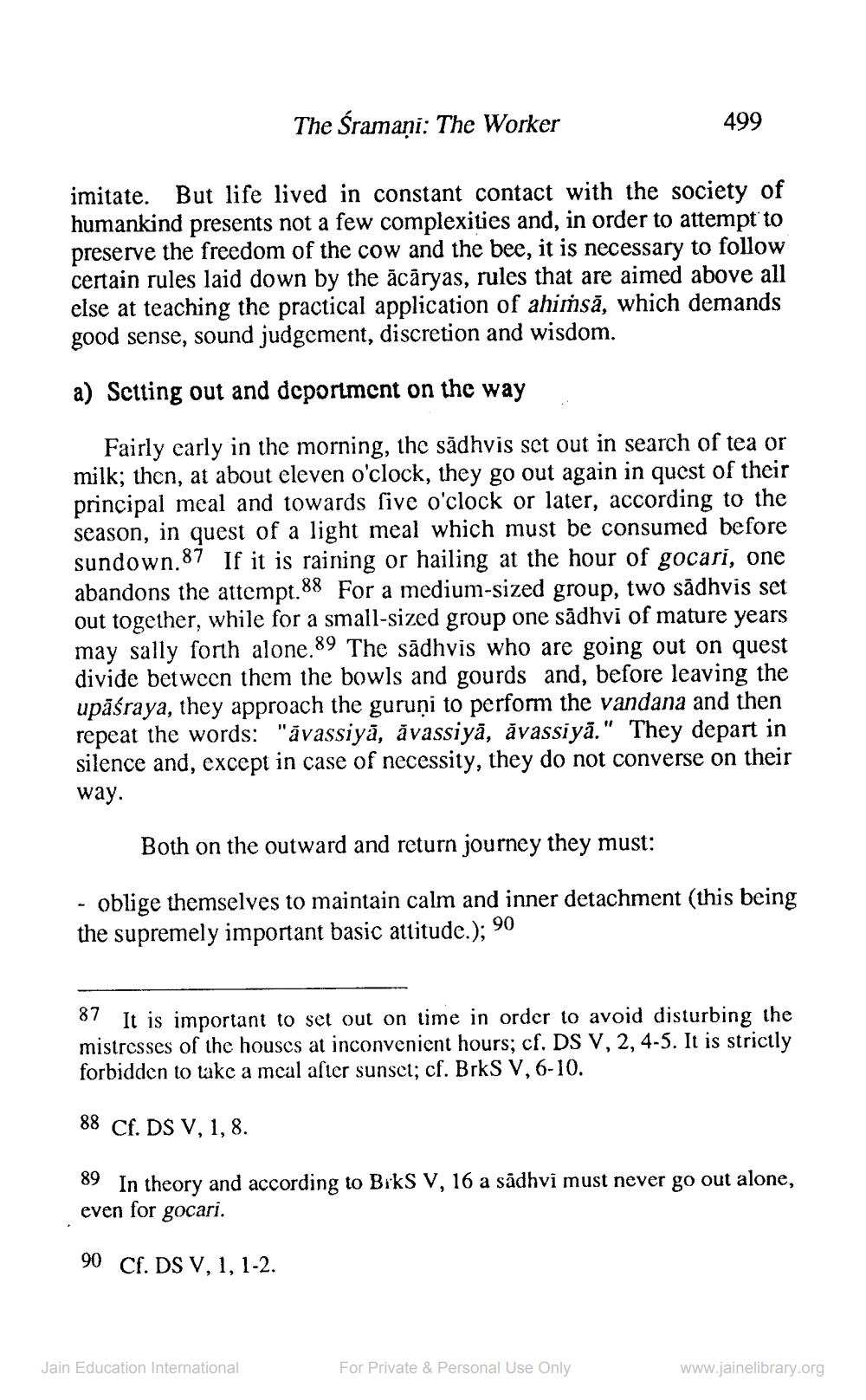________________
The Śramaņi: The Worker
499
imitate. But life lived in constant contact with the society of humankind presents not a few complexities and, in order to attempt to preserve the freedom of the cow and the bee, it is necessary to follow certain rules laid down by the ācāryas, rules that are aimed above all else at teaching the practical application of ahiṁsā, which demands good sense, sound judgement, discretion and wisdom.
a) Setting out and deportment on the way
Fairly early in the morning, the sādhvis set out in search of tea or milk; then, at about eleven o'clock, they go out again in quest of their principal meal and towards five o'clock or later, according to the season, in quest of a light meal which must be consumed before sundown.87 If it is raining or hailing at the hour of gocari, one abandons the attempt. 88 For a medium-sized group, two sādhvis set out together, while for a small-sized group one sādhvi of mature years may sally forth alone. 89 The sādhvis who are going out on quest divide between them the bowls and gourds and, before leaving the upāśraya, they approach the guruņi to perform the vandana and then repeat the words: "āvassiyā, āvassiyā, avassiyā." They depart in silence and, except in case of necessity, they do not converse on their way.
Both on the outward and return journey they must:
- oblige themselves to maintain calm and inner detachment (this being the supremely important basic attitude.); 90
87 It is important to set out on time in order to avoid disturbing the mistresses of the houses at inconvenient hours; cf. DS V, 2, 4-5. It is strictly forbidden to take a mcal after sunset; cf. BrkS V. 6-10.
88 Cf. DS V, 1, 8.
89 In theory and according to Biks V, 16 a sādhvi must never go out alone, even for gocari.
90 Cf. DS V, 1, 1-2.
Jain Education International
For Private & Personal Use Only
www.jainelibrary.org




